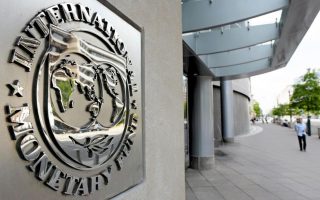Greek objections mar preparations for EU’s 60th birthday

Greece has stuck to its objections to a declaration to mark the European Union’s 60th anniversary, officials in Brussels and Athens said on Thursday, a potentially embarrassing setback for the bloc as it seeks to rebuild unity ahead of Brexit.
The leaders of the EU’s 27 remaining states will mark the anniversary on Saturday at a gathering in Rome overshadowed by Britain’s unprecedented decision to leave. London is due to formally trigger the divorce negotiations next week.
Athens has threatened not to sign the Rome declaration charting the future of the post-Brexit EU, making a link between agreeing to the text and separate talks on reforms that lenders are seeking from Greece in exchange for new loans.
“The negotiations on the draft Rome Declaration have ended as the text was finalized by the EU27,” an EU source said. “Only Greece has a general reservation on the text.”
Greece has said it wants the Rome text to spell out more clearly the protection of labor rights. Greece’s separate debt talks with international lenders are now stuck over this specific issue.
One diplomat in Brussels said the issue may now only be resolved at the highest level with Greek Prime Minister Alexis Tsipras.
Another EU diplomat said any attempt by Athens to win leverage on the international debt talks by holding off in Rome should not succeed: “We won’t be blackmailed by one member state which is linking one EU issue with a totally different one.”
As well as Greece, Poland indicated on Thursday it might also refuse to endorse the declaration, though diplomats played down the threat.
Warsaw is particularly opposed to a ‘multi-speed Europe,’ an idea promoted by Germany, France and Brussels, among others, to help improve decision-making in the post-Brexit EU.
This would allow countries keen to deepen cooperation in specific areas to press ahead without waiting for the whole bloc. Poland and some other eastern EU countries fear they could end up as second-class members, increasingly left behind by wealthier west European nations.
“If the declaration does not include the issues which are priorities for Poland, we will not accept the declaration,” Polish Prime Minister Beata Szydlo said.
But the sole sentence in the Rome declaration about this concept has been softened to accommodate Warsaw’s concerns, meaning any last-minute veto is highly unlikely, diplomats and officials said.
They said Warsaw had already approved the draft text earlier this week and said Szydlo’s comments appeared designed for domestic consumption and to allow her to claim a diplomatic victory at the summit.
[Reuters]





